“Patriotism without concern for people”
Thursday, 18.10.2012.
15:39

“Patriotism without concern for people” B92 Editor in Chief and B92 Fund Board of Directors President Veran Matic writes how B92 Fund has been fighting to keep soup kitchens in Kosovo open for the past several years: Shutting down soup kitchens in a country that had been boasting of being a “granary of Europe” for a long time at a moment when the global economic crisis broke out seemed disastrous. We quickly realized that the state had no intention to solve the problem and decided to launch a campaign through B92 Fund aimed at preventing the soup kitchens from being closed. We called our friends from Saatchi & Saatchi to help us plan the action and one of the most creative teams in the country made a brilliant concept for free, ideal for making the public sensible and for introduction of the Food for Everyone campaign. It was the “Hunger Strike against Hunger”. The campaign was fantastic and it drew public’s attention in Serbia and in the world and it quickly won many professional awards for creativity and efficiency and attracted more than 200,000 individuals and more than 300 companies. A couple of weeks later, the UN high commissioner himself went on a hunger strike against hunger for a day. We got the biggest donation in food worth EUR 600,000 for soup kitchens in the first wave. The food was distributed across Serbia with the help of Red Cross. At the same time, a scandalous abuse of funds raised for the need of soup kitchens in Kosovo by a team gathered around Bishop Artemije in the Raska-Prizren Eparchy was revealed. The scandal was shocking on an elementary human level, as well as when it comes to understanding of patriotism and attitude toward religion. From our journalistic point of view it was a recognizable situation – patriotic chest-thumping with Orthodoxy as a shield. After Bishop Artemije had been relieved of his duty and the shameful acts had been publicly revealed, staffing changes in the Serbian Orthodox Church (SPC) in Kosovo took place and Bishop Teodosije from well-known Decani monastery fraternity was appointed to head the Eparchy. My contact with the fraternity was through monk Sava, also known as Cyber Sava, a monk from the monastery who was a powerful messenger of spirituality in these parts but also an interpreter of current political events. Monk Sava managed to convey messages in a modern way that media in the West understood and they accepted him as a relevant and credible source. In the beginning of our friendship in the late 90s and early 2000s, the monastery was headed by Monk Teodosije. We thought about starting a Decani monastery radio station in the 90s. After the changes in the Raska-Prizren Eparchy had taken place, we got a call from new Bishop Teodosije to help renew soup kitchens whose work had been compromised by the embezzlement of the funds that had been raised for the poorest. We quickly investigated the situation and realized that the Kosovsko Pomoravlje District faced double isolation – both from Serbia and the Kosovo authorities. More than 700,000 citizens became second-class citizens and the poorest were left without a basic daily meal. We soon estimated that such project meant the only hope of survival for 2,000 poorest citizens of the Kosovsko Pomoravlje District and we decided to launch the Food for Enclaves campaign as a part of the Food for Everyone campaign. We have managed to strengthen the work of soup kitchens in the past two years while several convoys delivered more than 150 tons of flour, oil, salt, beans, rise, sugar, pasta, dairy products, canned and dried meat products and other foodstuffs necessary for the work of the soup kitchens. After we had managed to provide initial help, meaning to prevent shutting down of soup kitchens in the Kosovsko Pomoravlje District, we started a project aimed at strengthening the system itself. We bought a large freezer, an irrigation system, agricultural machinery in order to help the kitchen staff and users produce their own food. Aside from that, we helped build a wall around the Devic monastery which will be finished soon so six nuns could feel somewhat safer in the hostile environment. We usually try to collect enough food to fulfill the six-month need of the soup kitchens before winter and we distribute it on time. It turned out last year that it was very important because the communication was disabled over a long period of time due to constant snowfall and large snowdrifts. We are still trying to collect as much food as possible for the upcoming winter. We need 100 tons of flour, around 300 kilograms of seasoning, 8,640 kilograms of beans, around 300 liters of dish detergent, 70 liters cleaning products, kitchen cloths, sponges etc. When it come to salaries and costs, such as fuel for delivery vehicles that bring the food to the old and disabled, one would expect that the costs would be covered by some of the Serbian government’s budget items since the sum does not exceed EUR 60,000 a year but this has not happened. We call on everybody who is in a position to help to join the campaign. B92 TV’s investigative program Insider has in the series dubbed Patriotic Pillage revealed how enormous funds intended for the poorest Serbs in Kosovo ended up in pockets of certain individuals. The first food convoy arrived in villages of Prekovac and Novo Brdo on October 16. The municipality is predominantly populated by Serbs – there are 90 percent of Serbs and ten percent of ethnic Albanians. Due to recommendations from Serbia to boycott the local elections, Albanians now run the municipality and the majority of the population cannot make any decision on their lives and they rely solely on Serbia which is too far away and is often unaware of the problems of these people who have no other choice but to stay where they were born. I always wondered where representatives of our state are when I visit these parts. The administration is so big that we can realistically expect to know the status of every family in enclaves because there are not so many of them. In central and northern Serbia we talk about birth rate issues but at the same time we have the highest birth rate in the Kosovsko Pomoravlje District which is a result of the poverty and isolation but nothing is being done to make the life of the parents and children bearable. The elderly have been abandoned by their loved ones and by the state. There are no birth rate issues in the Serb-populated areas in Kosovo and the biggest number of babies is born in these parts compared to the number of citizens. I asked Bishop Teodosije how it was possible that so many children were born in the poorest families and got one of the possible answers that the reality and life were so hard that the birth of a child was one of the rare joys they could afford. B92 Fund’s Battle for Babies campaign has spread to Kosovo, i.e. to Gracanica and Kosovska Mitrovica hospitals that got an incubator and a phototherapy lamp that they badly needed. The Gracanica hospital also needs an x-ray machine, reanimation table, babytherm and vital functions monitor, while the Kosovska Mitrovica hospital needs a reanimation table and ten pulse oximeters. I have been thinking, how come the state has not found ways to make the lives of those who stayed and those who returned bearable? I have been thinking how Jews across the world appropriated money to make Israel an economic power, how fertile, agricultural land was made out of the desert, how a kibbutz system was created. On the other hand, Serbia cannot manage to make sustainable economy and communities out of the fertile land and traditional agricultural producers that would take care of their own welfare and progress. On top of it all, we too have a rich tradition of joining in communities in the country. In the Decani monastery you can see a model of a community of highly educated, spiritually strong people led by monk Sava who are determined to stand up to all challenges and be true defenders and messengers of the monastery’s heritage. This community draws its strength from the self-sustainable model, they make and sell high-quality wine, honey, they write and print books… The monument, which represents a combination of the West and the East both architecturally and notionally, had been protected throughout history in old, traditional ways but today the monks turned to modern models of defense and survival. The nobleness of the monks could be seen during the NATO bombing when not only Serbs but Albanians as well took refuge in the monastery. Just like we today see the intention of the soup kitchens in the Kosovsko Pomoravlje District to help poor Albanians as well. I have witnessed many times the clash of what has been proclaimed and reality, what is necessary and what has been imposed. I came to Kosovo on St. Vitus Day last year with a new convoy of donated food and to attend the opening of the freezer in Prekovac. I was invited to a lunch in Gracanica and I was uncomfortable walking through rows of Obraz, Nasi and Dveri Movement protesters who came from Belgrade just like I was uncomfortable when I realized that I sat at the same table with Bishop Pahomije who was accused of being a pedophile. At the same, the Serbian government representatives, who are well-paid to do their job, did not join our campaigns. Bishop Teodosije, Father Sava, archpriest’s wife Svetlana Stevic with their energy, determination and commitment made up for all our doubts and disappointments in the state system and attempts to make the authorities notice the people in the Kosovsko Pomoravlje District. In the situation where the government’s political messages about defense of Kosovo are increasing each day, protection and support to the poor population in the Serbian enclaves south of the Ibar River remains one of the most serious tests of the Serbian government’s honesty. The funds necessary to ensure that several thousands of our poorest countrymen are not starving is an almost insignificant amount for the budget of a state that swears on a daily basis that it will not renounce Kosovo at the price of joining the EU. The false dilemma reveals problems that are essentially human – what are the boundaries of patriotism and what does it even mean to politicians and citizens? I am neither religious nor an atheist. I believe in the words of Christ, the ones he said on Mount Sinai. God’s commandments are the first postulates I grew up with. I believe in messages but it seems irrelevant whether I am a member of the church if I follow the rules and norms that promote what we call god’s commandments. I think there are models that would allow a decent life to everyone in Kosovo who are being discriminated today but all of us have to work on them. I think that those running the country should meet every family in Kosovo and learn about all of their problems. I believe that wealthy Serbian citizens, with the devoted government, could make sure that every family’s existence is secured in the long run. Instead of debates on reforms of the state organization, we should focus on the quality of life. We should not allow incompetence or corruption to hide behind patriotic slogans. I am not talking about miracles. They are possible but only when all of us work hard on what can be done, when we put values of humanity at the forefront of our actions. Results of Food for Enclaves campaign The Food for Enclaves campaign, which was launched in February 2011, secured necessary foodstuffs and money for the purchase of food and further functioning of the soup kitchens in enclaves in the Kosovsko Pomoravlje District. The campaign went one step further from the original Food for Everyone campaign that helped dozens of soup kitchens across Serbia in 2010, by focusing on the population that lives in even harder conditions in the Kosovo enclaves bearing in mind that they are practically isolated from both Kosovo and Serbia’s political systems due to political, practical, financial and logistical issues. Six soup kitchens that were founded by NGO Maja devet Jugovica under the patronage of the Raska-Prizren Eparchy help 70,000 poorest citizens of the Kosovo enclaves. The kitchens are located in the villages of Novo Brdo, Prekovac, Recane, Vitina, Korminjane and Vrbovac. The majority of soup kitchen users are Serbs but there are also small numbers of Roma and Albanians. The B92 Fund wanted to help the population living and working in extremely difficult conditions and decided to invest funds and its reputation in the revival of the soup kitchen project in the Kosovsko Pomoravlje District by securing enough means to keep the kitchens working until the summer of 2013. In the Food for Enclaves campaign, the B92 Fund and donors provided flour, pasta, oil, dairy products, sugar, tomato sauce and other foodstuffs necessary for the work of the soup kitchens. A total of 270 tons of food and RSD 3mn was secured. The money covers the costs of staff’s wages, fuel for delivery vehicles and furniture. The B92 Fund bought a freezer worth EUR 5,300 in June 2011 and an irrigation sprinkler worth EUR 5,200 in order to encourage self-sustainability, which is one of the priorities at the moment. It is estimated that the donations amounted to EUR 500,000. RSD 500,000 was invested in delivery vehicles. The B92 Fund influenced the Ministry for Kosovo to donate RSD 100,000 to the soup kitchens, which ensured their functioning until the summer of 2012. The Fund also started building a new soup kitchen in the municipality of Strpce that will be able to provide meals to 50 people. The B92 Fund is preparing a new contingent of food for the upcoming winter. The delivery will include 50 tons of flour, five tons of beans, large amounts of canned food and cleaning products and it will be worth EUR 60,000. The goal of the Food for Enclaves project is not just one-time help but to form a system of sustainability through combination of its own production, state aid and collective social solidarity. Preparations for the construction of stalls and a goat milking facility are underway and milk and cheese will be used in soup kitchens but they will also be sold in order to provide money for the work of the soup kitchens. The construction will cost around EUR 70,000 while other costs of the project will amount to EUR 30,000. Everybody who is interested in helping the soup kitchens in Kosovo can contact the B92 Fund. Four years ago B92 reporters revealed a crisis affecting soup kitchens across Serbia. After additional research, we learned that a soup kitchen is closed when there is not enough money to buy bread. B92 Editor in Chief and B92 Fund Board of Directors President Veran Matic writes how B92 Fund has been fighting to keep soup kitchens in Kosovo open for the past several years.
“Patriotism without concern for people”
B92 Editor in Chief and B92 Fund Board of Directors President Veran Matić writes how B92 Fund has been fighting to keep soup kitchens in Kosovo open for the past several years:Shutting down soup kitchens in a country that had been boasting of being a “granary of Europe” for a long time at a moment when the global economic crisis broke out seemed disastrous. We quickly realized that the state had no intention to solve the problem and decided to launch a campaign through B92 Fund aimed at preventing the soup kitchens from being closed.
We called our friends from Saatchi & Saatchi to help us plan the action and one of the most creative teams in the country made a brilliant concept for free, ideal for making the public sensible and for introduction of the Food for Everyone campaign. It was the “Hunger Strike against Hunger”.
The campaign was fantastic and it drew public’s attention in Serbia and in the world and it quickly won many professional awards for creativity and efficiency and attracted more than 200,000 individuals and more than 300 companies.
A couple of weeks later, the UN high commissioner himself went on a hunger strike against hunger for a day.
We got the biggest donation in food worth EUR 600,000 for soup kitchens in the first wave. The food was distributed across Serbia with the help of Red Cross.
At the same time, a scandalous abuse of funds raised for the need of soup kitchens in Kosovo by a team gathered around Bishop Artemije in the Raška-Prizren Eparchy was revealed.
The scandal was shocking on an elementary human level, as well as when it comes to understanding of patriotism and attitude toward religion. From our journalistic point of view it was a recognizable situation – patriotic chest-thumping with Orthodoxy as a shield.
After Bishop Artemije had been relieved of his duty and the shameful acts had been publicly revealed, staffing changes in the Serbian Orthodox Church (SPC) in Kosovo took place and Bishop Teodosije from well-known Dečani monastery fraternity was appointed to head the Eparchy.
My contact with the fraternity was through monk Sava, also known as Cyber Sava, a monk from the monastery who was a powerful messenger of spirituality in these parts but also an interpreter of current political events. Monk Sava managed to convey messages in a modern way that media in the West understood and they accepted him as a relevant and credible source.
In the beginning of our friendship in the late 90s and early 2000s, the monastery was headed by Monk Teodosije. We thought about starting a Dečani monastery radio station in the 90s.
After the changes in the Raška-Prizren Eparchy had taken place, we got a call from new Bishop Teodosije to help renew soup kitchens whose work had been compromised by the embezzlement of the funds that had been raised for the poorest.
We quickly investigated the situation and realized that the Kosovsko Pomoravlje District faced double isolation – both from Serbia and the Kosovo authorities.
More than 700,000 citizens became second-class citizens and the poorest were left without a basic daily meal.
We soon estimated that such project meant the only hope of survival for 2,000 poorest citizens of the Kosovsko Pomoravlje District and we decided to launch the Food for Enclaves campaign as a part of the Food for Everyone campaign. We have managed to strengthen the work of soup kitchens in the past two years while several convoys delivered more than 150 tons of flour, oil, salt, beans, rise, sugar, pasta, dairy products, canned and dried meat products and other foodstuffs necessary for the work of the soup kitchens.
After we had managed to provide initial help, meaning to prevent shutting down of soup kitchens in the Kosovsko Pomoravlje District, we started a project aimed at strengthening the system itself. We bought a large freezer, an irrigation system, agricultural machinery in order to help the kitchen staff and users produce their own food.
Aside from that, we helped build a wall around the Devič monastery which will be finished soon so six nuns could feel somewhat safer in the hostile environment.
We usually try to collect enough food to fulfill the six-month need of the soup kitchens before winter and we distribute it on time. It turned out last year that it was very important because the communication was disabled over a long period of time due to constant snowfall and large snowdrifts.
We are still trying to collect as much food as possible for the upcoming winter. We need 100 tons of flour, around 300 kilograms of seasoning, 8,640 kilograms of beans, around 300 liters of dish detergent, 70 liters cleaning products, kitchen cloths, sponges etc.
When it come to salaries and costs, such as fuel for delivery vehicles that bring the food to the old and disabled, one would expect that the costs would be covered by some of the Serbian government’s budget items since the sum does not exceed EUR 60,000 a year but this has not happened.
We call on everybody who is in a position to help to join the campaign.
B92 TV’s investigative program Insider has in the series dubbed Patriotic Pillage revealed how enormous funds intended for the poorest Serbs in Kosovo ended up in pockets of certain individuals.
The first food convoy arrived in villages of Prekovac and Novo Brdo on October 16. The municipality is predominantly populated by Serbs – there are 90 percent of Serbs and ten percent of ethnic Albanians.
Due to recommendations from Serbia to boycott the local elections, Albanians now run the municipality and the majority of the population cannot make any decision on their lives and they rely solely on Serbia which is too far away and is often unaware of the problems of these people who have no other choice but to stay where they were born.
I always wondered where representatives of our state are when I visit these parts.
The administration is so big that we can realistically expect to know the status of every family in enclaves because there are not so many of them.
In central and northern Serbia we talk about birth rate issues but at the same time we have the highest birth rate in the Kosovsko Pomoravlje District which is a result of the poverty and isolation but nothing is being done to make the life of the parents and children bearable. The elderly have been abandoned by their loved ones and by the state.
There are no birth rate issues in the Serb-populated areas in Kosovo and the biggest number of babies is born in these parts compared to the number of citizens. I asked Bishop Teodosije how it was possible that so many children were born in the poorest families and got one of the possible answers that the reality and life were so hard that the birth of a child was one of the rare joys they could afford.
B92 Fund’s Battle for Babies campaign has spread to Kosovo, i.e. to Gračanica and Kosovska Mitrovica hospitals that got an incubator and a phototherapy lamp that they badly needed.
The Gračanica hospital also needs an x-ray machine, reanimation table, babytherm and vital functions monitor, while the Kosovska Mitrovica hospital needs a reanimation table and ten pulse oximeters.
I have been thinking, how come the state has not found ways to make the lives of those who stayed and those who returned bearable? I have been thinking how Jews across the world appropriated money to make Israel an economic power, how fertile, agricultural land was made out of the desert, how a kibbutz system was created.
On the other hand, Serbia cannot manage to make sustainable economy and communities out of the fertile land and traditional agricultural producers that would take care of their own welfare and progress. On top of it all, we too have a rich tradition of joining in communities in the country.
In the Dečani monastery you can see a model of a community of highly educated, spiritually strong people led by monk Sava who are determined to stand up to all challenges and be true defenders and messengers of the monastery’s heritage. This community draws its strength from the self-sustainable model, they make and sell high-quality wine, honey, they write and print books…
The monument, which represents a combination of the West and the East both architecturally and notionally, had been protected throughout history in old, traditional ways but today the monks turned to modern models of defense and survival. The nobleness of the monks could be seen during the NATO bombing when not only Serbs but Albanians as well took refuge in the monastery. Just like we today see the intention of the soup kitchens in the Kosovsko Pomoravlje District to help poor Albanians as well.
I have witnessed many times the clash of what has been proclaimed and reality, what is necessary and what has been imposed.
I came to Kosovo on St. Vitus Day last year with a new convoy of donated food and to attend the opening of the freezer in Prekovac. I was invited to a lunch in Gračanica and I was uncomfortable walking through rows of Obraz, Naši and Dveri Movement protesters who came from Belgrade just like I was uncomfortable when I realized that I sat at the same table with Bishop Pahomije who was accused of being a pedophile.
At the same, the Serbian government representatives, who are well-paid to do their job, did not join our campaigns.
Bishop Teodosije, Father Sava, archpriest’s wife Svetlana Stević with their energy, determination and commitment made up for all our doubts and disappointments in the state system and attempts to make the authorities notice the people in the Kosovsko Pomoravlje District.
In the situation where the government’s political messages about defense of Kosovo are increasing each day, protection and support to the poor population in the Serbian enclaves south of the Ibar River remains one of the most serious tests of the Serbian government’s honesty.
The funds necessary to ensure that several thousands of our poorest countrymen are not starving is an almost insignificant amount for the budget of a state that swears on a daily basis that it will not renounce Kosovo at the price of joining the EU.
The false dilemma reveals problems that are essentially human – what are the boundaries of patriotism and what does it even mean to politicians and citizens?
I am neither religious nor an atheist. I believe in the words of Christ, the ones he said on Mount Sinai. God’s commandments are the first postulates I grew up with. I believe in messages but it seems irrelevant whether I am a member of the church if I follow the rules and norms that promote what we call god’s commandments.
I think there are models that would allow a decent life to everyone in Kosovo who are being discriminated today but all of us have to work on them. I think that those running the country should meet every family in Kosovo and learn about all of their problems.
I believe that wealthy Serbian citizens, with the devoted government, could make sure that every family’s existence is secured in the long run. Instead of debates on reforms of the state organization, we should focus on the quality of life. We should not allow incompetence or corruption to hide behind patriotic slogans.
I am not talking about miracles. They are possible but only when all of us work hard on what can be done, when we put values of humanity at the forefront of our actions.
Results of Food for Enclaves campaign
The Food for Enclaves campaign, which was launched in February 2011, secured necessary foodstuffs and money for the purchase of food and further functioning of the soup kitchens in enclaves in the Kosovsko Pomoravlje District.The campaign went one step further from the original Food for Everyone campaign that helped dozens of soup kitchens across Serbia in 2010, by focusing on the population that lives in even harder conditions in the Kosovo enclaves bearing in mind that they are practically isolated from both Kosovo and Serbia’s political systems due to political, practical, financial and logistical issues.
Six soup kitchens that were founded by NGO Maja devet Jugovića under the patronage of the Raška-Prizren Eparchy help 70,000 poorest citizens of the Kosovo enclaves. The kitchens are located in the villages of Novo Brdo, Prekovac, Rečane, Vitina, Korminjane and Vrbovac. The majority of soup kitchen users are Serbs but there are also small numbers of Roma and Albanians.
The B92 Fund wanted to help the population living and working in extremely difficult conditions and decided to invest funds and its reputation in the revival of the soup kitchen project in the Kosovsko Pomoravlje District by securing enough means to keep the kitchens working until the summer of 2013.
In the Food for Enclaves campaign, the B92 Fund and donors provided flour, pasta, oil, dairy products, sugar, tomato sauce and other foodstuffs necessary for the work of the soup kitchens. A total of 270 tons of food and RSD 3mn was secured. The money covers the costs of staff’s wages, fuel for delivery vehicles and furniture.
The B92 Fund bought a freezer worth EUR 5,300 in June 2011 and an irrigation sprinkler worth EUR 5,200 in order to encourage self-sustainability, which is one of the priorities at the moment.
It is estimated that the donations amounted to EUR 500,000. RSD 500,000 was invested in delivery vehicles.
The B92 Fund influenced the Ministry for Kosovo to donate RSD 100,000 to the soup kitchens, which ensured their functioning until the summer of 2012. The Fund also started building a new soup kitchen in the municipality of Štrpce that will be able to provide meals to 50 people.
The B92 Fund is preparing a new contingent of food for the upcoming winter. The delivery will include 50 tons of flour, five tons of beans, large amounts of canned food and cleaning products and it will be worth EUR 60,000.
The goal of the Food for Enclaves project is not just one-time help but to form a system of sustainability through combination of its own production, state aid and collective social solidarity.
Preparations for the construction of stalls and a goat milking facility are underway and milk and cheese will be used in soup kitchens but they will also be sold in order to provide money for the work of the soup kitchens. The construction will cost around EUR 70,000 while other costs of the project will amount to EUR 30,000.
Everybody who is interested in helping the soup kitchens in Kosovo can contact the B92 Fund.






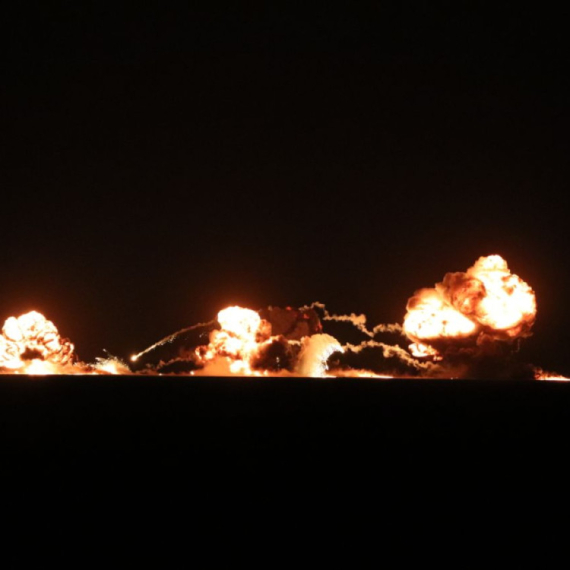





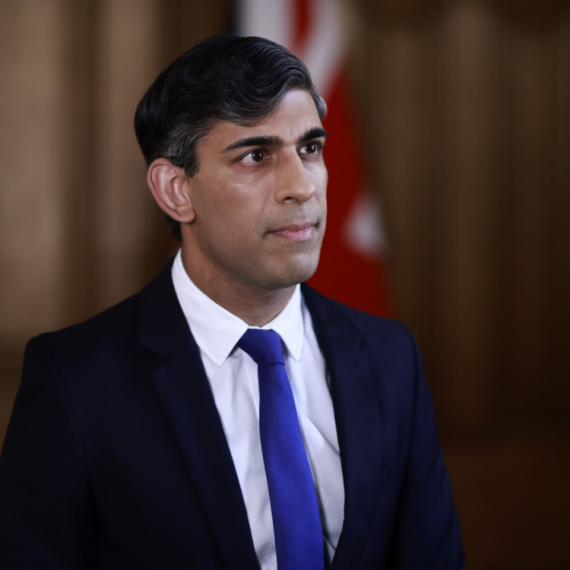

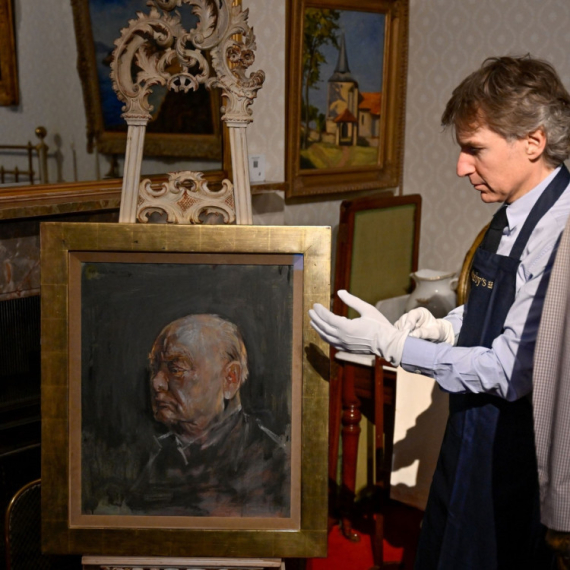
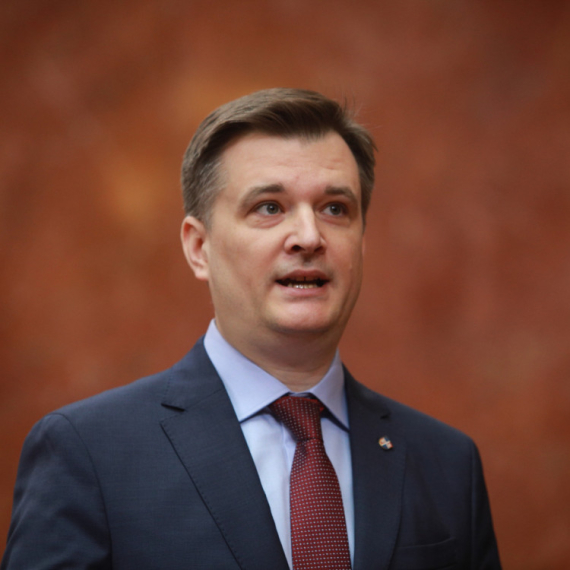
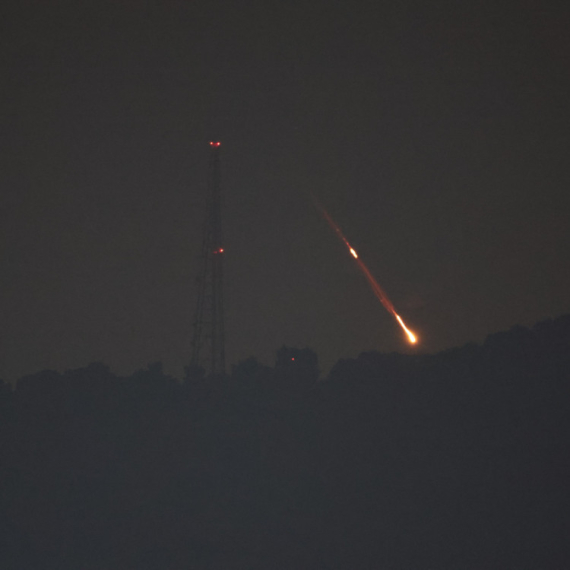
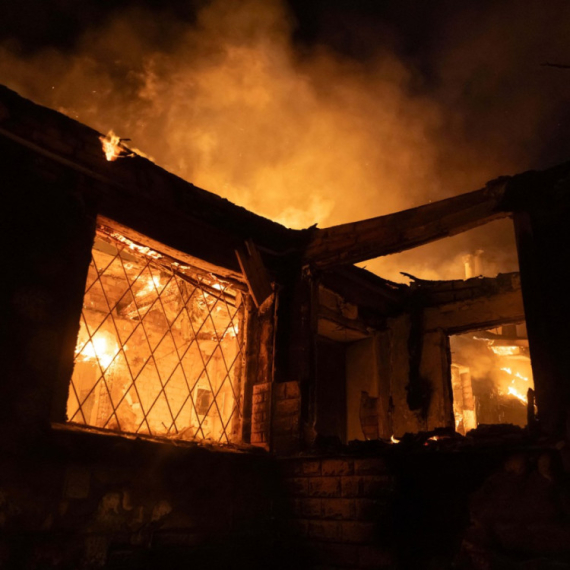


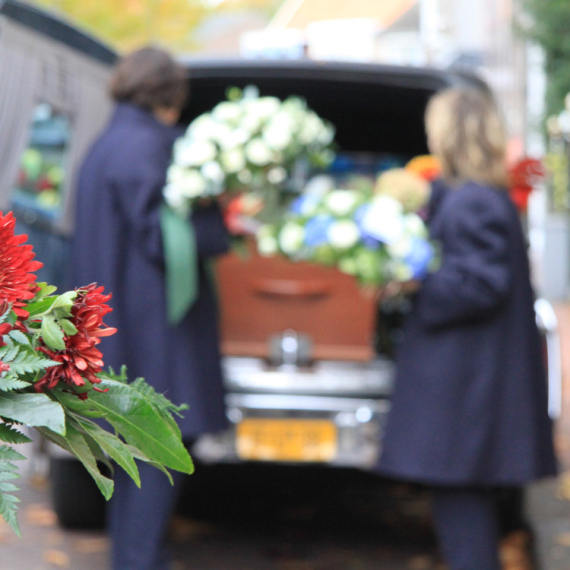



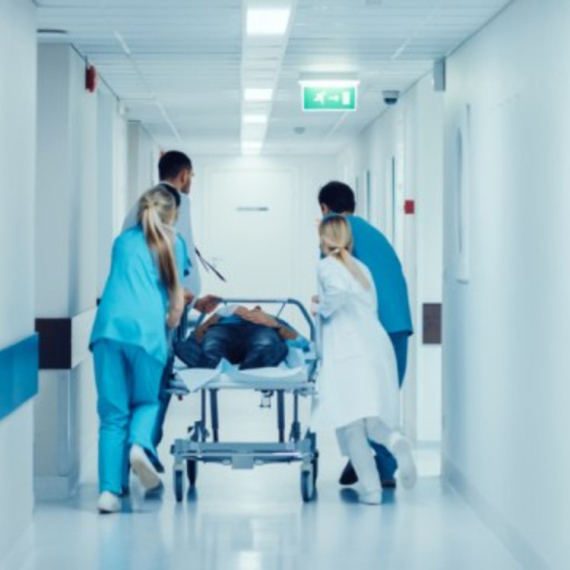
















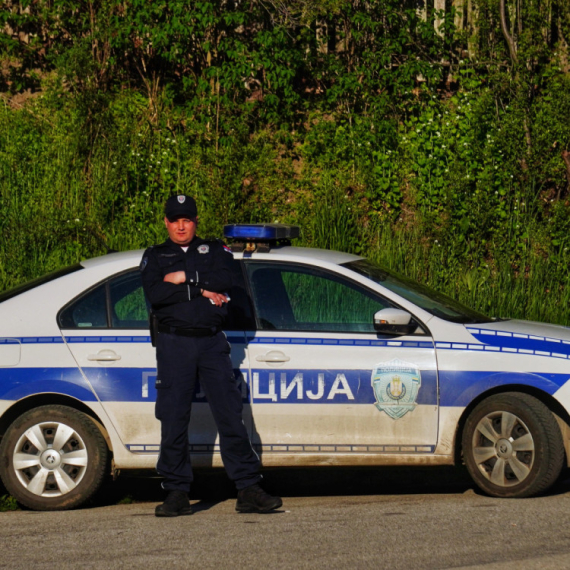










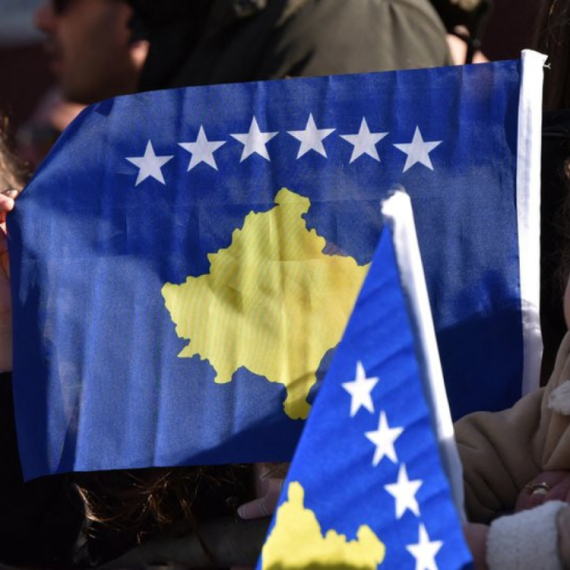





Komentari 2
Pogledaj komentare